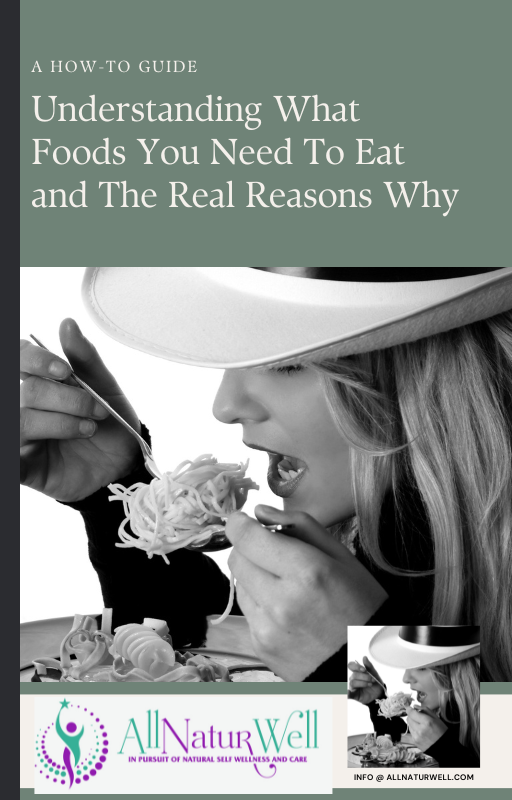Nourishing the Mind: The Role of Nutrition in Mental Health
Mental health is intricately connected to what we feed our bodies. This means that our food choices affect more than just our physical health; they can directly impact our mood, focus and emotional well-being.
By paying attention to the foods we consume, and the way our bodies react, especially for women dealing with ADHD, bipolar disorder or rejection sensitivity, we can make better choices that promote mental clarity, emotional balance and cognitive function.
Nourishing the Mind
Understanding the Gut-Brain Connection
At the center of the relationship between food and mental health is the gut-brain connection. Your gut, often called the “second brain,” plays a significant role in mood regulation, cognition and emotional health through the gut-brain axis.
What you eat influences your gut microbiome, which in turn affects neurotransmitters like serotonin and dopamine – key chemicals in mood regulation. In short, a happy gut equals a happy brain. Incorporating fiber-rich foods like vegetables, fruits and whole grains supports a healthy gut and, consequently, your mind.
think of it like this...
Imagine your brain is the control center of a busy train station, constantly managing emotions, thoughts and mental processes. Now, picture your gut as the railway system feeding into that station. If the tracks (your gut) are smooth and well-maintained, trains (signals) move freely, delivering passengers (nutrients) to their destinations (brain functions) on time. But when the tracks are damaged or blocked by processed foods, sugar, or stress, the trains slow down or derail, causing delays and confusion in the station. That’s when you feel brain fog, mood swings, or anxiety.
Eating gut-friendly foods like fiber-rich vegetables (think broccoli, kale, and spinach), fermented foods (such as sauerkraut, kimchi, and yogurt), and omega-3-rich fish (like salmon and mackerel) helps keep the tracks in top shape. These foods promote good bacteria and reduce inflammation, ensuring the trains run on time and your brain stays clear and balanced.
Here are three highly recommended books on the gut-brain connection you may be interested in:
The Gut-Brain Connection: How It Can Affect Your Mood, Memory, and Your Health by Dr. Michael G. McCoy
This book explores the complex relationship between the gut and brain, discussing how gut health influences mental health and overall well-being. Dr. McCoy provides practical advice on improving gut health to enhance cognitive function and emotional balance.The Mind-Gut Connection: How the Hidden Connection Between Our Gut and Brain Affects Our Mood, Our Choices, and Our Overall Health by Dr. Emeran Mayer
Dr. Mayer, a gastroenterologist, dives into the science behind the gut-brain connection and how it impacts our emotions, behavior and physical health. He offers insights into how to harness this connection for better health through dietary changes and lifestyle modifications.Brain Maker: The Power of Gut Microbes to Heal and Protect Your Brain – for Life by Dr. David Perlmutter
In this book, Dr. Perlmutter explores the role of gut microbes in brain health and disease. He provides a roadmap for improving gut health through diet and lifestyle changes, emphasizing how this can positively affect brain function and reduce the risk of neurological conditions.
These books provide valuable insights into the gut-brain connection and practical strategies for optimizing both gut and brain health.
Nourishing the Mind
Macronutrients and Mental Health
The three macronutrients—protein, fat, and carbohydrates—are essential for your brain’s proper function.
- Protein provides amino acids, which are the building blocks for neurotransmitters like serotonin and dopamine.
- Healthy fats (think omega-3s found in fish, flaxseeds, and walnuts) support brain structure and function. These fats have been shown to reduce symptoms of anxiety and depression.
- Carbohydrates fuel your brain, but the quality matters. Focus on complex carbs like whole grains and vegetables, which provide slow-releasing energy to stabilize your mood and focus, rather than refined sugars that cause spikes and crashes.
Micronutrients: Essential Vitamins and Minerals for Your Brain
Beyond the basics, micronutrients—vitamins and minerals—are equally crucial for mental health. Vitamin D, B-vitamins, magnesium, and zinc all play a role in neurotransmitter production, energy metabolism, and reducing inflammation. Low levels of these nutrients have been linked to increased rates of depression and anxiety, so ensuring a well-rounded, nutrient-dense diet is key to supporting emotional balance and cognitive function.
Nourishing the Mind
Antioxidants and Phytochemicals
Antioxidants and phytochemicals found in colorful fruits and vegetables protect the brain by combating oxidative stress and inflammation. These compounds are particularly important for women with ADHD, bipolar disorder, and rejection sensitivity, as they promote neurotransmitter production and reduce cellular damage.
For optimal benefits:
- Berries, leafy greens, and cruciferous vegetables (like broccoli) are rich in these protective compounds.
- Herbs and spices such as turmeric, ginger, garlic, saffron, and cinnamon provide additional anti-inflammatory and antioxidant benefits.
Tip: Opt for organic fruits and vegetables whenever possible, and avoid heavily processed or coated produce. Shopping at local farmers’ markets and eating seasonally is not only environmentally friendly but also better for your body. Humans weren’t designed to eat the same foods all year round.
Nourishing the Mind
The Impact of Sugar and Processed Foods
On the flip side, sugar and processed foods are the enemies of mental clarity. Consuming excessive added sugars and processed foods leads to blood sugar imbalances, inflammation, and disrupted neurotransmitter function—all of which can worsen mood swings, increase anxiety, and impair cognitive performance. This is particularly problematic for women managing ADHD, bipolar disorder, or rejection sensitivity.
Refined carbs and sugary snacks cause spikes in blood sugar, leading to energy crashes that leave you feeling mentally foggy and irritable. The addictive nature of these foods also triggers emotional eating, perpetuating the cycle.
To break free:
- Focus on whole foods like fruits, vegetables, lean proteins, and healthy fats.
- Eliminate or limit sugary snacks, processed foods, and beverages high in added sugars.
By doing so, you’ll support stable blood sugar levels, reduce inflammation, and help your brain function optimally.
Hydration and Mental Clarity
Don’t underestimate the power of hydration. Dehydration can cause fatigue, brain fog, and difficulty concentrating. It’s essential to drink enough water throughout the day to maintain cognitive function and mental clarity.
Aim for at least 8 cups (2 liters) of water daily. Additionally, herbal teas and water infused with fruits or herbs can not only hydrate but also provide antioxidants. Dehydration, even at mild levels, can lead to symptoms like irritability and difficulty focusing, so always stay ahead of your thirst.
Nourishing the Mind
Understanding What Not to Eat and Why
Knowing what to avoid is just as important as understanding what to include in your diet. Processed foods, artificial additives, and refined sugars can hinder neurotransmitter function and increase inflammation. The rise in processed, nutrient-poor foods correlates with increased mental health struggles. Make it a priority to avoid foods with artificial colorings, preservatives, and excess sodium, which contribute to brain inflammation and mental fog.
Creating a Sustainable Eating Pattern
Creating a sustainable eating pattern is essential for lasting mental well-being. One guiding principle is the idea of “Eat to live, don’t live to eat”. This approach focuses on nourishing your body with the nutrients it needs rather than eating out of habit, boredom, or emotional comfort. This shift in mindset encourages you to prioritize balanced, nutrient-dense meals that fuel your body and brain.
Two popular strategies to help foster this mindset are intermittent fasting and foraging. Intermittent fasting involves cycling between periods of eating and fasting, allowing your body to function optimally in both states. This method encourages mindful eating, where you only consume food when your body truly needs it rather than indulging in constant snacking.
We’ll dive into intermittent fasting in a future post, but for now, focus on nourishing yourself with high-quality whole foods while being mindful of when and how much you’re eating.
Nourishing the Mind
The Final Word: A Balanced Approach for Mental Well-Being
Ultimately, nutrition is a powerful tool for improving mental health, but it’s not about perfection—it’s about balance. By focusing on whole, nutrient-dense foods, staying hydrated, and avoiding processed junk, you can create a sustainable eating pattern that supports not only your body but also your mind. Prioritize foods that fuel your brain, stabilize your emotions, and support cognitive function, while steering clear of those that contribute to mental fog, mood swings, and emotional imbalance.
Your mental well-being is worth the extra effort, and your body will thank you for the loving care you give it.
You Might Be Interested In
Disclaimer: The information and/or products mentioned in these article are provided as information resources only and are not to be used or relied on to diagnose, treat, cure or prevent any disease. The statements made in this article have not been evaluated by the Food and Drug Administration. Any products mentioned are not intended to diagnose, treat, cure, or prevent any disease, but rather to be considered as an informational resource only to encourage critical thinking and personal research. The information in this article is intended for educational purposes only. The information is not intended to replace medical advice offered by licensed medical physicians. Please consult your doctor or health care practitioner for any and all medical advice.
and don't forget to sign up for our weekly newsletter. it's free!

52 Weeks, 52 Topics! Get Our Latest ‘Stay Well’ Newsletter Every Monday And Start Your Week Off AllNaturWell. A New Tip, A New Study Revealed, A New Product Reviewed. Get It Right To Your Inbox Weekly. No Need To Wait. It’s Free!






